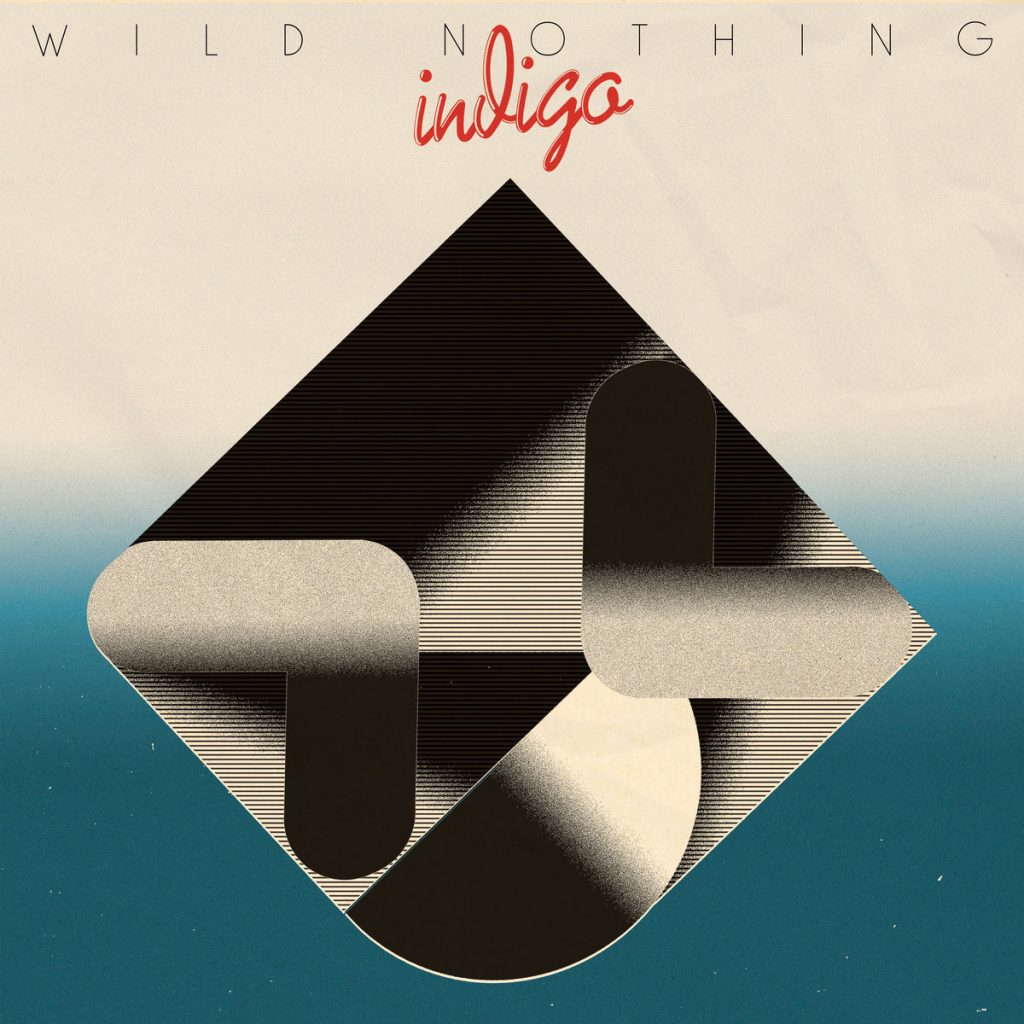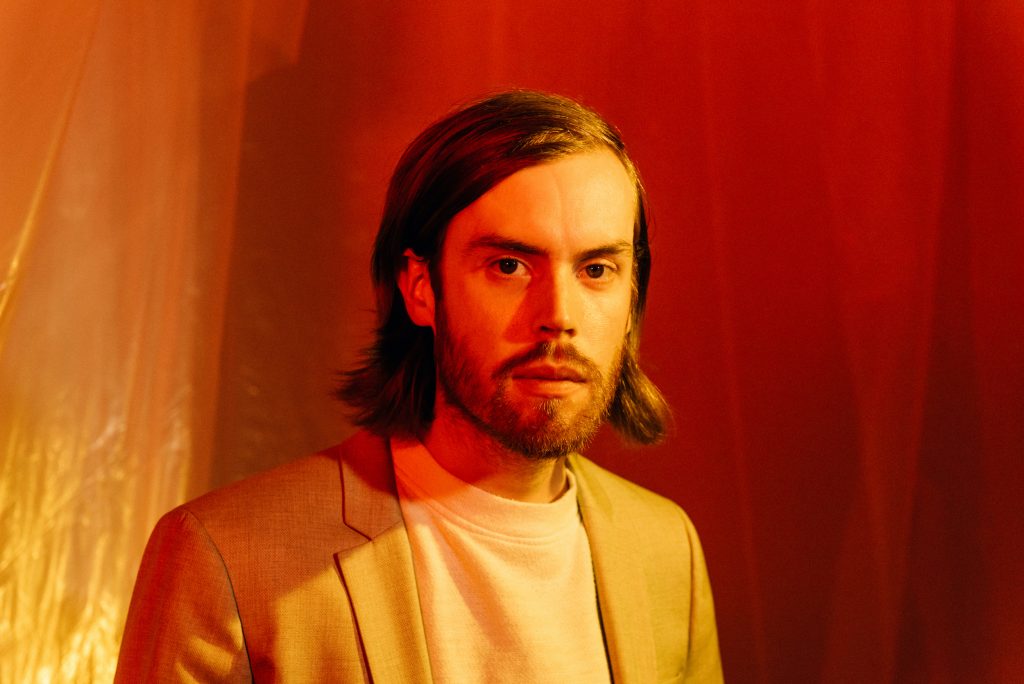Wild Nothing’s Studio Exploration
Boundless and inspiring, the musical mind of Jack Tatum is nothing short of dazzling, whether you’re listening to your first album by his recording project Wild Nothing or hearing him wax poetically about the importance of melody to music. The Williamsburg, VA native first made waves at the start of the decade over in Blacksburg where his robust demos and musical aesthetic commanded the attention of record labels, music publications, and eager fans. His 2010 album Gemini was hailed as a triumph in the dream pop genre and he followed that up with two more highly acclaimed records, 2012’s Nocturne and 2016’s Life Of Pause, which moved his sound out of the dream realm and into a land full of shoegazey ambience and power pop indie rock.
On his new record, Indigo released this past August on Captured Tracks, Tatum delivers the most fully realized record of his still young career, one that sees him embrace his own ethos with such zealous passion that it drives the musician into a new space full of ornately poignant moments. Songs like “Letting Go” and “Through Windows” provide a shimmering and driving example of the scope of his music with impellent melodies that sparkle in isolation and radiate in motion.
After the release of his new record, and on the eve of his move to Richmond, VA, we discussed the musical philosophies of Wild Nothing with Jack Tatum extensively, finding out just how much the recording process matters to him and the role lyrics ultimately play in his albums.
So what prompted the move from Los Angeles to Richmond?
I’ve kind of contemplated making the move back to Virginia at various points over the years, and my wife and I just finally decided to do it this summer. I want to be closer to my parents, and I want more space. Also, the fact that I just like it. I’ve always liked Richmond. I grew up in Williamsburg and I’ve been coming to Richmond and have had family friends in Richmond my whole life basically.
Have you kept tabs on the music scene here at all over the years?
Not too much to be totally honest. I don’t really know what’s going on there currently, but it will be exciting to find out once we’re fully settled. I’m such an isolated person when it comes to making music anyway. Even being in these other places, I was so rarely taking advantage of a scene or anything.
It’s been a hectic year for you then with the move and this album release.
I didn’t exactly plan it this way. I thought we’d be more settled by now, but it’s just the way it goes. It’s fine. It’s been weirdly typically for me over the last ten years to just make a lot of crazy life decisions at once and then stack them all together. It’s kind of cool though. I like it that way. You have all these changes at once. I feed off that nervous energy a bit.
On your new record Indigo, I’ve heard you describe it as a “true studio record.” Do you mean it in the way that you really explored the studio as its own instrument in the process?
Yeah, for sure. I definitely subscribe to that Brian Eno philosophy of the studio being an instrument. Not even necessarily the studio, but recording in general. It’s such a big part of my own songwriting process so I can’t really imagine how my songwriting would have progressed if I wasn’t constantly self-recording. It’s been extremely rare in my life that I’ve sat down on a guitar or at a piano and written a song from start to finish, hammering out a chord structure and melody. It always kind of happens as I go because I need to piece it together slowly. Doing it mostly myself is just the nature of it. I think anyone who does home recording can relate to that. With this record, I guess the studio served as the most important instrument in that sense.
At this point in your recording career, do you have a firm process down to make a song with steps you know you’ll have to take?
Things change slightly depending on the song. For the most part, I’ve done things the same way that I have since I was a teenager. The songs just morph and change as I’m making them. I can’t imagine making a record where there isn’t an extensive demo period. Every record I’ve ever made, I still have pieces of the songs on my computer with a bunch of demos. One with just a verse, and then one later on where I added a chorus finally and sort of figured out how the sound is going to work.
I keep having to do these drafts to finally reach a place where I’m happy. It’s like it is for so many artists: I never actually feel like I’m done with something. At a certain point, you have to walk away from it. I could sit here and work on the song for another month or six months or whatever, but it would just be overkill at that point.

In this sense, is your songwriting process modular with parts going in and out of songs, or is just more of continually tweaking and polishing things?
I don’t necessarily write different sections and then build this collection to then see how they’ll fit with different songs. Once I start a song, I like to work through it until I finish it. I’ve never had pieces from one song that have ended up in another. It’s just this weird code you have to crack. A lot of times, I’ll have most of the song and I just know it needs another part or I know that a melody on a verse is not quite as good as it could be. It’s just a matter of constantly adjusting these things. I’m always mixing as I go.
I’ve heard you reference your own limitations as a musician in the past. Are those limitations ones you try to break out of, or ones you try to help inform the process?
I’ve done this for a good while now, even though somedays, weirdly, it feels like no time has passed and I’m still 21 years old about to release my first record. I still feel like I work in a lot of the same ways. But I also recognize how much time has passed and all of what I’ve accomplished in the meantime. When I said you realize the limitations of what you can do, I can look back at all these records that I’ve made and realize the things I like about them and what I dislike about them. You realize what you’re good at it.
I think I’ve battled a lot over the years with how to work other things into this project. Things that I like and other reference points and other different things taste-wise. At the same time, I also feel like I have to accept that this is what I’ve made so I realize what the guidelines of this project are. I would openly admit that I’m not a natural frontman so for me, recording is where I feel like I flourish and feel the most comfortable.
Are there other aspects of recording you’d like to try out too, besides being the focus and frontman, like producing or even session work?
Absolutely. When I was living in Los Angeles, I was starting to do some of those things and I still feel like it’s something I’m very interested in. Another large reason why I decided to move back to Virginia too is because I feel like I’ll be much better able to set up an environment that’s my own. That’s something I’ve dream about since I was a kid. Just really having a space of my own where I can do all of these things, record all my own records and also work with all these different people. There’s a lot of more behind the scenes stuff I can see myself doing over the next few years. I don’t really do this project because I want the attention from it. It’s just what I do… so I do it.
You mentioned being able to look back on your past records and see what you like and dislike about them. Are you able to do that with Indigo, or will it take some time for you?
It does take some time I think. I have this high after making a record where I feel very attached and feel very close to it. I just get very excited about it and feel like it’s some of the best work I’ve ever done. I feel like I’m still in that period and it takes some time until I can reflect on it in a way that I’m more critical of it. I go through these cycles of being really hard on myself, but I think that’s what drives my creativity too. I think if I wasn’t hard on myself then I wouldn’t have as much as a drive to keep pushing myself to try and make a record every two years.
The last track on this record, “Bend,” was co-written with Mitski. How did that situation arise?
When I was living in Los Angeles, I started doing a number of co-writing sessions. Sometimes, it would be some weird pop stuff where I’d get set up with an LA based pop singer. It was very strange. I did it a number of times. Sometimes it was fun, and other times it would feel stiff and weird. But one session that I got set up to do was with Mitski and it was great. There were a handful of sessions during that time that were very beneficial and I learned a lot in just an afternoon, and that was definitely one of them.
We didn’t have any set thing we were supposed to be working on. I had a demo for that song so I pulled it up and she helped me work through the whole song and wrote a lot of the vocal melodies. It was cool. I’d never done much of that in the past. I’ve always been very reserved about letting people into that space. But it was nice. It was really freeing to finally say, “You should take a stab at this.” What’s interesting is that it ended up being melodies and things that I wouldn’t have done otherwise.
Earlier, you talked about making music in an isolated setting. Since you didn’t create “Bend” this way, does it stick out to you on this album, or were you able to blend it in with the rest of the record?
I do feel a little differently about it, but there were other instances on the record of letting people in a little bit more. I did the whole record with Jorge Elbrecht who is another musician that’s done a lot of work that I respect. I got him involved on the record initially to help me produce and mix it. But we spent a lot of time going through the songs and restructuring things. Bend is not the only song where that was going on. But it is, even separate of who was involved, one of my favorite songs on the record.
Indigo starts off with a very urgent feeling. Was this important to drop the listener into the sound as opposed to slowly escorting them in?
I think that was very much intentional. I really think of this record as a pop record so I wanted to have a number of songs have that kind of propulsive energy. I always try and be thoughtful with the track listing. I don’t know if it matters anymore or how people even listen to music most of the time. Maybe just skipping around because I know I do that too.
By the way you talk about the music and the recording process, it’s clear the lyrics are a secondary component of your records. Because of this, do you think these songs exist on their own regardless of the vocal or lyrical content?
I guess they would if I’m being perfectly honest. Melody is the most important thing to me when I’m listening to music. It’s just always been that way for me. It’s never been that I don’t care about the lyrics, it’s just that the melody is the thing that sticks to me. When I put on a record that I haven’t heard for the first time, it’s not even until the second listen that I even begin to pay attention to what they’re saying. That’s just the way my brain works. So I guess it works the same for my own music. So yeah, the tracks would exist with our without the lyrics.
That being said, I’ve gotten myself into a lot of trouble in the past by saying that or making it seems like the lyrics don’t matter to me at all. They do. It’s just secondary. Literally. It’s the second thing I do in the process. The song is done and the melody is in place by the time I get around to writing lyrics. But that’s just because of my process. I guess I’m old school in the way I craft songs. Melody is so important to me that I’d rather have a melody that I feel good about and then have to fit lyrics into that melody, rather than vice-versa. I think it really changes the way the melodies work if you’ve already written lyrics and then try to fit them into a song. It can be really difficult.
Do you ever have lyrics that actually do inform the songwriting though?
For sure. Like I said, while it is rare that I will sit down with an instrument and write a whole song, it’s happened. There’s a song on this record, “Wheel Of Misfortune,” where I was simultaneously writing lyrics and figuring out the song as I went. I don’t know why that is. Why sometimes it feels natural and other times it doesn’t. I have a complicated relationship with lyrics. It’s hard for me to talk about.

You definitely have impactful lyrics in the music, like the core line “The Closest Thing To Living,” but it does feel like the record is constructed in a way where you’re meant to experience the music first and foremost.
I definitely purposefully favor the music and the sound and the melody. I feel like that either clicks with people or it doesn’t. There’s a lot of people who value that stuff, but then there’s other people who don’t really care that much. The first thing they listen to when they hear a record is the vocals and they’re going to sit there and crunch their nose to try and figure out what they’re saying. And that’s not me. There’s shit there worth unpacking. I don’t necessarily want to have to unpack it. But it’s there.
Do you approach writing lyrics in the same way you do as recording the music, or do you find it comes out naturally with the song once you have the music set?
I go through with drafts with that too. I have this process of singing scratch vocals on all the songs I’m working on. As I’m going, I’ll just record freeform gibberish just to have a melody and I’ll tweak things from there. I do that for a couple of reasons. One, so there’s a semblance of a vocal line in the song when I’m working on it. Two, you find yourself gravitating towards these phonetic sounds that just work. Then from there, I just think “is there anything phonetically that I’m saying that can be re-established as actual words or phrases?” That’s the first step for me. From there, it’s just tweaking things until I have something I feel good about. It’s a little more free-form. I wouldn’t say my lyrics are vague, but they’re not particularly literal or narrative either in my opinion.
Would you like people to listen to your music in that sense – with an ambient mood that transcends literal and narrative experiences?
I guess so. Who am I to say how someone should listen to my record though? Maybe I’m just the type of person who’s not overly critical of the things I’m listening to. I like something when I like it and when I don’t, I just don’t listen to it. I think there’s a story to hear and a story to be told within this record, but I’d hate to beat anyone over the head with it. There’s stuff in there people can relate to, and if they don’t, maybe they’ll like it or maybe they’ll just move on.
It feels like albums that lack a strong narrative don’t quite get the push or attention like its counterparts. Do you feel like that could be a detriment to the industry?
I don’t know. I just like to sit at home and listen to Thomas Dolby. I listen to some cheesy shit. I listen to some shit other people would say is bogus with lyrics that are horrible. But I love it. In that sense, I’m not particularly drawn to heavy lyrical content. I try to stay away from things that read too of the moment. Obviously, there’s some shit in my lyrics where Im referencing technology, but for the most part, I don’t like things that are hyper-specific. I feel that it takes me out of the music. But I know it is something a lot of people do actually like and find a lot more rewarding in music. That’s totally fair, just not how my own mind works when it comes to music.
Indigo by Wild Nothing is out now and can be purchased digitally through iTunes, Amazon, and Bandcamp, with vinyl copies available through Captured Tracks. Follow Wild Nothing on Facebook, Twitter, and Instagram, and find his upcoming tour dates here.



